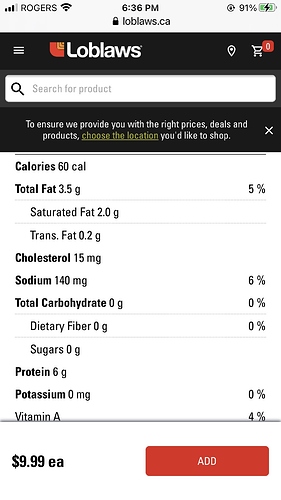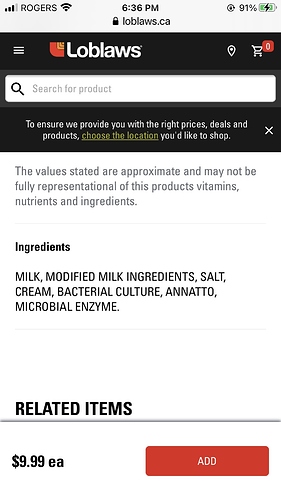I bought a package of cheese strings for kids and I . I do like them . It says no carbs but does that mean each stick is less than .5 if more than .5 I would read 1 carb ?
Cheese string carb
My understanding is that <0.5 can be rounded to 0. Whether that means there are actually 0.49g of carbs in each serving is another matter. But yes, it’s possible.
Sometimes you see “<1g” or similar disclosures, which are at least a bit more descriptive.
Having said this, unless you’ve got a reason to avoid dairy (and cheese tends to bother folks with lactose issues much less, if at all, compared to milk), I wouldn’t personally worry about <1g carb in a cheese stick or two messing up my keto efforts. 
Try to find the specific product in the USDA food database. That will give you the carbs/100gr.
They are a Canada brand . It’s presidents choice . It’s like marbelisious but they are one per stick this says 0
I believe that only applies to sugar, not other carbohydrate, but I might be wrong. The trick is to cross-check with the list of ingredients. If it says 0 g of sugar, but a form of sugar is listed in the ingredients, then the safest assumption is that the amount of sugar per serving is 0.499999999999 g. (Likewise, if it should saywheat in the ingredients and 0 g of carbohydrate on the nutrition panel.) And multiply the serving size to get a reasonable portion. So if the serving size is one teaspoon, and you know you are going to eat a cup, then you multiply 0.499999999999 by 72 (I believe that’s right; three teaspoons are one tablespoon and three tablespoons are a fluid ounce, and a cup contains—in the U.S.—eight ounces) to get the actual amount of sugar you are likely to be consuming per real serving size.
Hey, we’ve been known to import stuff into the U.S.! In any case, it’s always worth a check in the Food Composition database. The easiest way is if you happen to have the UPC handy.
Milk has lactose, which is a sugar/carb. Harder cheeses get most of the lactose removed, but softer cheeses leave more lactose behind.
Dairy, ie: milk, is probably one of the few ‘foods’ that ought to be processed into cheeses, butter, sour cream, yogurt, etc, to be consumed without too many adverse events.


